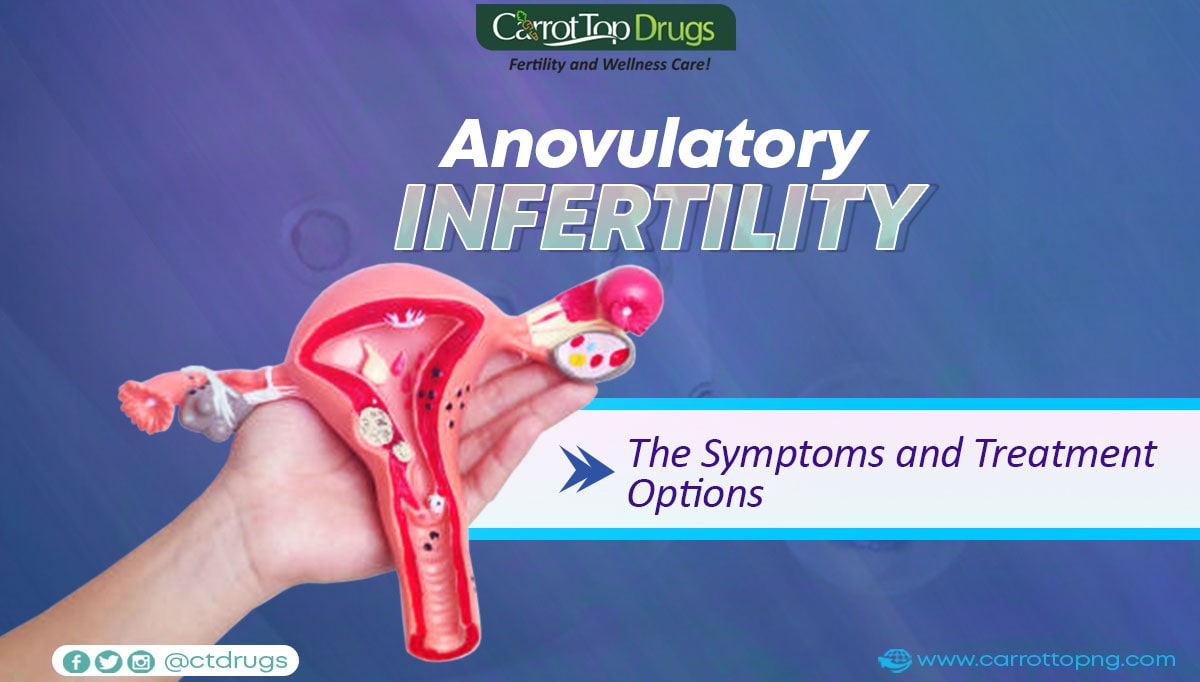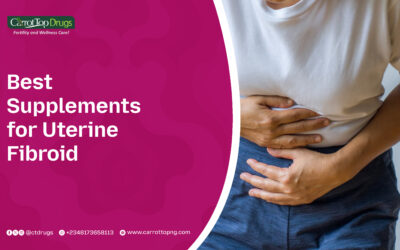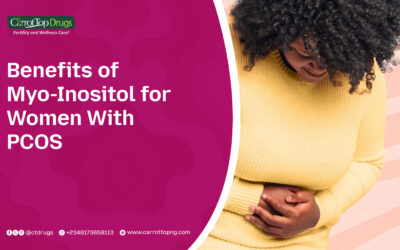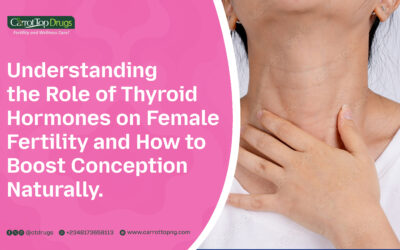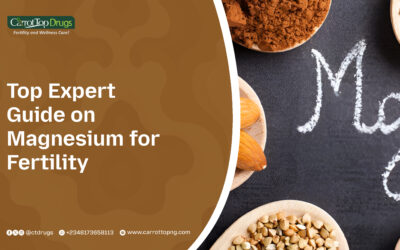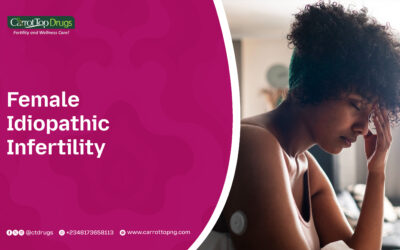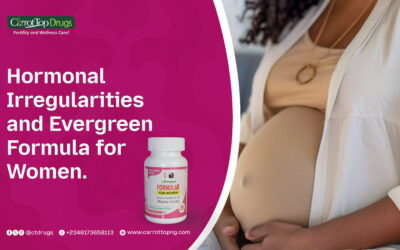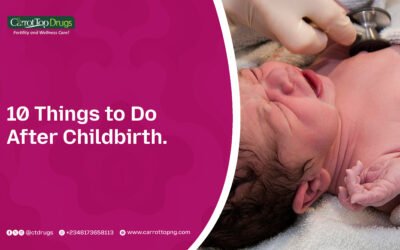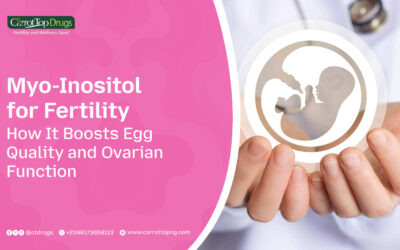Anovulatory infertility is a type of infertility that affects ovulation. Ovulation is the release of an egg or oocyte from the ovary of a woman. We discussed its causes in the previous article.
In this article, we want to help you identify the symptoms of anovulatory infertility. We also would point you toward the best treatment options. Are you ready? Let’s go!
Symptoms of Anovulatory Infertility:
There are many symptoms of anovulatory infertility. They depend on their causative factors. Some of the symptoms to look out for before going to the physician are:
Irregular menstrual cycles
Irregular menstrual cycles mean that the women still ovulate. But, we can not predict when it would happen. Without the ability to predict ovulation, getting pregnant could be difficult. This can easily lead to anovulatory infertility.
Lack of cervical mucus
The woman’s cervix secretes mucus to ease the movement of sperm cells to the egg. This facilitates fertilization. The absence of cervical mucus is a symptom of anovulatory infertility. This makes it very difficult for the sperm to reach the egg.
Elevated basal body temperature
It is normal for women to have a slight increase in temperature during ovulation. But, this could also be experienced by women with anovulatory infertility.
This temperature rise is due to the effect of the hormone called progesterone. This hormone is produced after ovulation has occurred. However, in the absence of ovulation, the level of progesterone may remain elevated. This would be responsible for the higher basal body temperature.
Acne and oily skin
As discussed in the previous article, hormonal imbalance can cause anovulatory infertility. Some of the symptoms of hormonal imbalance are the presence of acne and/or oily skin. Once you notice them, you should consult your doctor.
Excessive Hair Growth
Women with anovulatory infertility may experience excessive hair growth due to hormonal imbalances. In the event that it is caused by PCOS, elevated androgen levels may result in excessive hair growth.
Painful periods
The presence of painful periods could be an indicator of anovulatory infertility. It is due to hormonal imbalance in the woman.
Mood swings
Mood swings could also be the experience of a woman with anovulatory infertility.
Thin or watery uterine lining
Progesterone is the hormone that prepares the uterus for implantation. Due to hormonal imbalance, the lining of the uterus could be thin or watery. This would make implantation of the fertilized egg. It could also be a symptom of anovulatory infertility.
High levels of luteinizing hormone (LH)
LH is the hormone that is responsible for stimulating ovulation. However, it does not act alone. It acts with FSH (follicle-stimulating hormone). When LH is far greater than FSH, it could lead to anovulation. A ratio of LH to FSH greater than 3 is an indicator of anovulatory infertility.
Treatment of Anovulatory Infertility:
The treatment of anovulatory infertility depends on the underlying cause. Some common treatments include:
Medications to induce ovulation
When dealing with anovulatory infertility, stimulating ovulation is the key. One of the best means to induce ovulation is through medication. What these medications would attempt to do is to stimulate the ovaries. The ovaries would be stimulated to produce and release eggs. This, therefore, increases the chances of conception.
Fortunately, there is a wide spectrum of medications that a woman may choose from. The most common on the list is clomiphene citrate or clomid for short and letrozole. We recommend Ovumine which is our brand of clomid. The mode of action of these medications is to block the action of estrogen. This causes the brain to release more follicle-stimulation hormone. FSH stimulates the growth of the follicles which contains the eggs. Upon maturity, these follicles release their content – the eggs. This is how ovulation happens. After ovulation, the next thing is fertilization.
Aside from clomid and letrozole, there are other options. These options include the injectable forms of human chorionic gonadotropin (hCG) and FSH. These also help to induce ovulation. This course of action is usually for women who haven’t responded to oral medications.
We do not recommend this because there are a few risks involved in taking these medications. One of them is the risk of multiple pregnancies. This can increase the risk of complications for both the mother and baby.
It is best for women who take these medications to be monitored by their healthcare provider to reduce the risks. This ensures the safest outcome.
In conclusion, we have been able to see that though these medications can help, they also carry some risks. Hence, it is best to make this decision with the recommendation of your doctor.
Lifestyle changes
Lifestyle is the first thing to change when dealing with many health challenges. Anovulatory infertility is not an exception to this.
A better lifestyle would always be a better option to improve ovulation. Let us examine a few changes in lifestyle and their impact on improving ovulation.
Weight loss is beneficial for women with anovulatory infertility who are overweight. The reason for this is that excess body fat could disrupt the hormonal balance. This may result in irregular menstrual cycles or anovulatory infertility. Thus, losing some weight not only gets you in shape but can also restore ovulation.
You are what you eat. Eating a healthy diet is also important for managing anovulatory infertility. A diet rich in processed foods, refined carbs, and sugar may cause insulin resistance. This can interfere with ovulation. Eating a diet rich in fruits, vegetables, whole grains, lean protein, and healthy fats can help regulate insulin levels. This improves ovulation.
Regular exercise is also crucial for improving ovulation in women with anovulatory infertility. Exercise can help to reduce insulin resistance, promote weight loss, and improve overall health. Women with this condition should aim to exercise for at least 30 minutes a day. This should be done most days of the week. This can include activities such as brisk walking, jogging, cycling, or swimming.
Surgery
Surgery may be a necessary treatment option for anovulatory infertility in some cases. In the case that there are several cysts in the ovary of a woman which may be due to PCOS, surgery may be necessary. Surgery is needed to remove ovarian cysts or other growths that affect ovulation.
Your healthcare provider may recommend surgery to deal with uterine fibroids and polyps. This could also be done to other structural abnormalities that prevent ovulation.
Surgery is very effective, yet, it is not the first line of treatment most times. Other less invasive treatment options may be tried first. Surgery is only followed depending on the specific cause of anovulatory infertility. Laparoscopic surgery may be used to remove ovarian cysts or treat endometriosis.
Surgeries have its risk and potential complications. These can include infection, bleeding, and damage to surrounding organs or tissues. Hence, this should be a decision that should be taken with your healthcare provider.
In all, surgery can be an effective treatment option for anovulatory infertility. It may be costly depending on the procedure and it also carries potential risks.
Assisted reproductive technologies (ART)
These are effective treatments for anovulatory infertility. ART treatments include a range of procedures such as IVF, ICSI, and GIFT. These techniques can help overcome many causes of anovulatory infertility. Problems with ovulation and sperm motility are some of such causes.
In Vitro Fertilization (IVF) is one of the most common ART procedures. It involves artificially fertilizing the eggs with sperm in a lab dish. This zygote (the fertilized egg) is then implanted into the woman’s uterus. This procedure is used primarily in women with structural abnormalities like blocked tubes.
ART treatments have changed the treatment of anovulatory infertility. It has also helped a lot of couples achieve their dream of having a child. However, this procedure is quite expensive. It may require multiple cycles to achieve success. It is very important for couples to seek the advice of their healthcare provider.
Supplements
There are several supplements that could help improve ovulation. As we have seen in the previous article, there are several causes. These supplements help to tackle some of these causes.
Evergreen Formular for Women is a supplement that contains nutrients that could tackle some of the causes of anovulation.
Vitamins A, C, and E are known for their antioxidative properties. They help to mop off the excess free radicals that can affect your ovaries and prevent ovulation.
PCOS causes an elevation in androgens in women. Vitamin D lowers the levels of androgens, thus, improving ovulation.
As discussed in the previous article, hyperprolactinemia can cause anovulatory infertility. Hyperprolactinemia means there is an excess amount of prolactin in the blood. Vitex contains flavonoids, diterpenes, and glycosides that can help normalize progesterone levels. This can help restore ovulation.
Evergreen Formular for Women contains all the above-listed nutrients. In addition, in comparison with the other treatment options, it is a cheaper option.
Another supplement we would recommend is Evergreen CM. It contains important nutrients such as L-arginine and Vitamin C. EVERGREEN CM basically improves the body’s mechanism of producing fertile cervical mucus, especially around a woman’s most fertile days. It also plays a very important role in strengthening the uterine walls. This is very important in preparing for pregnancy. By implication, it reduces the risk of a miscarriage due to a weak uterine lining.
However, supplements should be taken with the counsel of your healthcare provider.
Frequently Asked Questions
Q. Can anovulatory infertility be cured?
A. It can often be treated successfully, depending on the underlying cause.
Q. Is anovulatory infertility common?
A. Yes, it is a relatively common cause of infertility in women.
Q. Can anovulatory infertility be prevented?
A. Yes, it can. Though this depends on the cause. It is best to maintain a healthy weight and lifestyle.
Conclusion
In this article, we have examined the symptoms of anovulatory infertility and treatments. There is still hope even with anovulation. You may choose to go with the supplement. Consult your health provider and the best course of action would be recommended to you.

